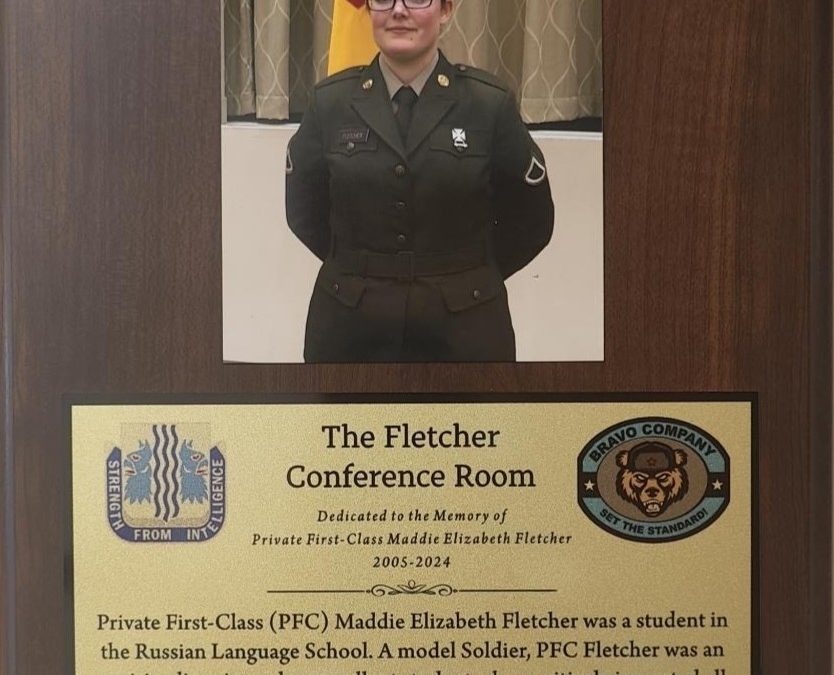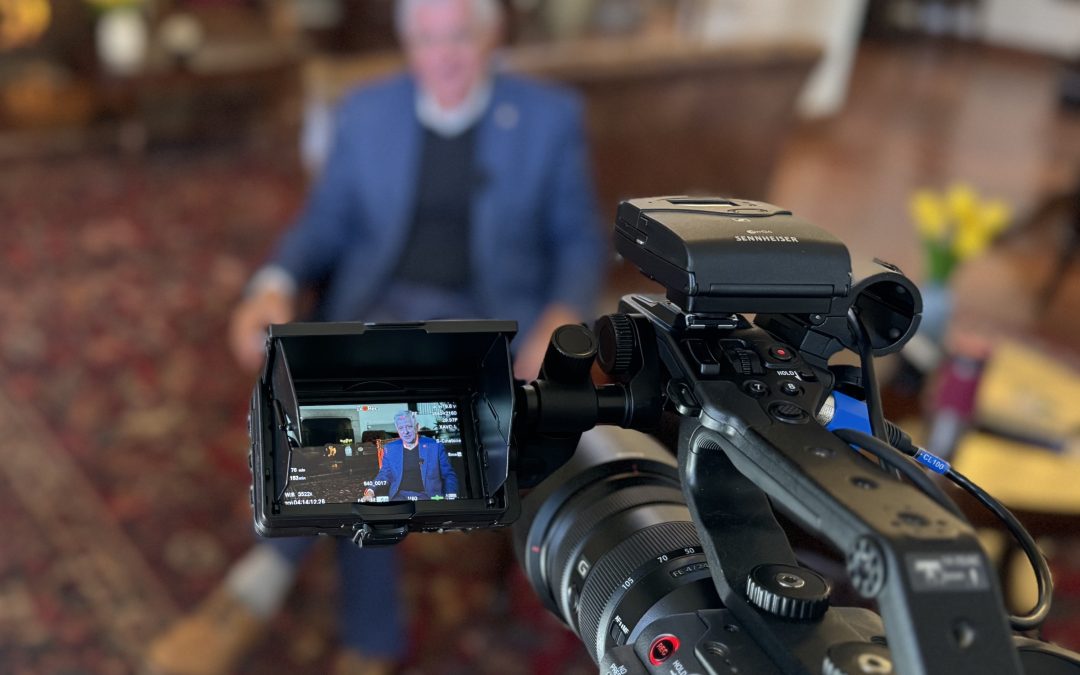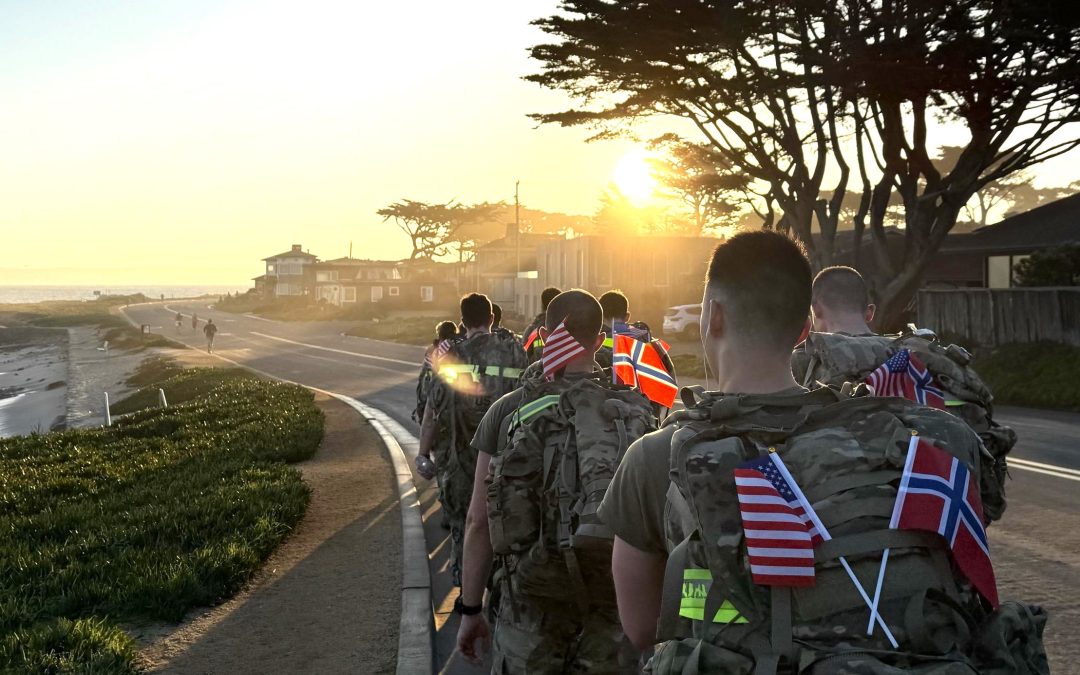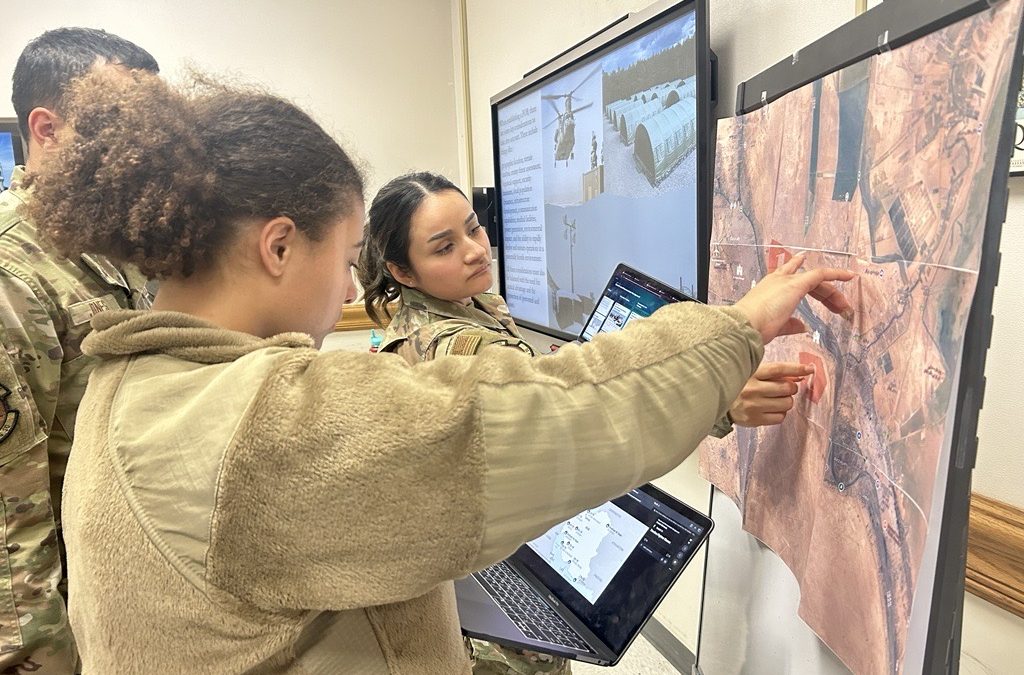By Patrick Bray
DLIFLC Public Affairs
Editor’s note: This article is a feature from the Foreign Area Officer program’s monthly officer professional development series at DLIFLC.

Foreign Area Officers listen as Daniel Eizenga, a doctoral candidate at the University of Florida and a researcher with Sahel Research Group, speaks about Boko Haram with FAOs in language training at the Defense Language Institute Foreign Language Center May 19. Eizenga spoke as part of the FAO program’s monthly officer professional development program, which is a critical part of FAO training at DLIFLC. (Photo by Patrick Bray, DLIFLC Public Affairs)
MONTEREY, Calif. – Daniel Eizenga, a doctoral candidate at the University of Florida and a researcher with Sahel Research Group, shared his understanding of Boko Haram with Foreign Area Officers in language training at the Defense Language Institute Foreign Language Center May 19.
“The point I want to drive home is that some will argue this is a Nigeria specific problem, but Boko Haram is a regional phenomenon,” said Eizenga.
Eizenga began with the history and geography of the ethnically, religiously and linguistically diverse region where Boko Haram has gained influence. The Francophone Sahel, as it is referred to in the academic community, is the crossroads between North Africa and sub-Saharan Africa and was previously colonized by the French.
According to Boko Haram, colonization brought Western systems to Africa and thus these things brought corruption, said Eizenga.
Boko Haram emerged in the 1990s as an extension of Al Qaeda to overthrow Western influence. It operates in northeastern Nigeria and parts of Niger, Chad and Cameroon. The U.S. State Department classifies Boko Haram as a terrorist organization and Nigeria sees it as an insurgency and Jihadi organization. More recently, Boko Haram has pledged its allegiance to and adopted the black flag of ISIL, which has plagued parts of Iraq, Syria and even Libya.

Daniel Eizenga, a doctoral candidate at the University of Florida and a researcher with Sahel Research Group, shared his understanding of Boko Haram with Foreign Area Officers in language training at the Defense Language Institute Foreign Language Center May 19. Eizenga spoke as part of the FAO program’s monthly officer professional development program, which is a critical part of FAO training at DLIFLC. (Photo by Patrick Bray, DLIFLC Public Affairs)
Approximately 2.5 million people have been displaced by Boko Haram, which creates a huge humanitarian crisis. It has destroyed entire villages and massacred populations, said Eizenga.
“Despite all of this, Boko Haram gains a lot of support and recruitment because it plays itself as the victim, someone who has been persecuted by the Nigerian government,” said Eizenga.
Boko Haram gained international attention in 2014 when it kidnapped more than 250 schoolgirls from a government secondary school in Chibok, Nigeria. Boko Haram is actually a nickname, which the organization has accepted, that is usually translated as “Western education is forbidden.” According to Boko Haram, they were saving the schoolgirls from non-Muslim education.
Today, Nigeria claims that Boko Haram is defeated but is still conducting terrorist attacks in the region. Unlike ISIL, Boko Haram is not trying to set up a state and it holds no territory today. Instead it wants to purge the region of Western influence and disavow those whom it views as not true Muslims.
Eizenga’s recommendation for what the U.S. can do in the region is to continue with humanitarian assistance because it counters the perception that U.S. support is based solely on force. The U.S. currently conducts military-to-military cooperation with Nigeria in which U.S. troops help train Nigerian forces.

A California National Guard Special Forces soldier reviews a sand table map with a Nigerian soldier in June 2014. Daniel Eizenga, a doctoral candidate at the University of Florida and a researcher with Sahel Research Group, shared his understanding of Boko Haram with Foreign Area Officers in language training at the Defense Language Institute Foreign Language Center May 19. Eizenga spoke as part of the FAO program’s monthly officer professional development program, which is a critical part of FAO training at DLIFLC. (Photo courtesy of the California National Guard)
Eizenga spoke as part of the FAO program’s monthly officer professional development program, which is a critical part of FAO training at DLIFLC. The monthly program is as an essential addition to the biannual Joint Foreign Area Officer Course Phase I, usually held in January and June.
FAOs, who come from the four branches of the U.S. military, are regionally focused and are considered experts on political-military issues. Once their FAO training is completed, they are expected to serve as defense attachés, security cooperation officers and political-military planners worldwide.
DLIFLC provides resident instruction in 23 languages at the Presidio of Monterey, California, with the capacity to instruct another 65 languages in Washington, D.C., graduating more than 200,000 linguists since 1941.
In addition, multiple language training detachments exists at sites in the U.S., Europe, Hawaii and Korea spanning all the U.S. geographic combatant commands, to support the total force.




